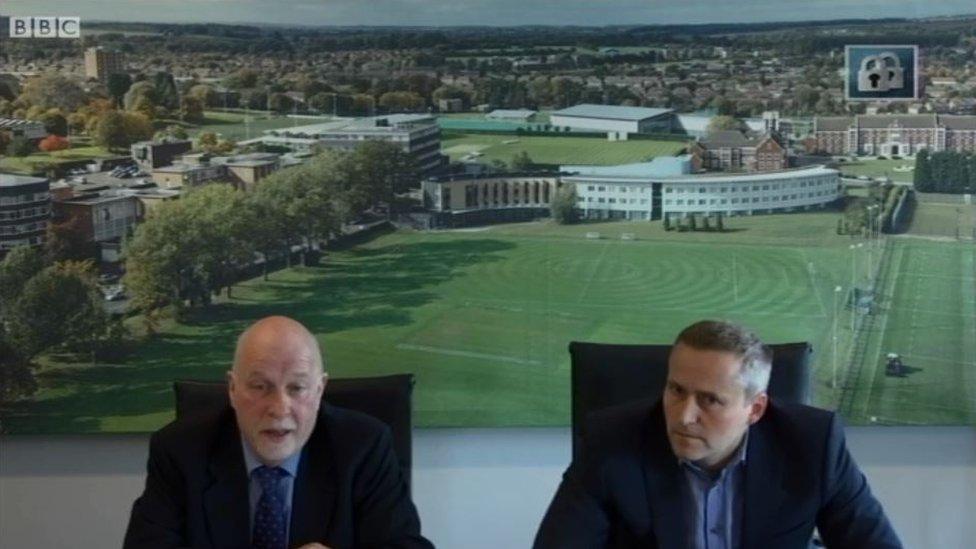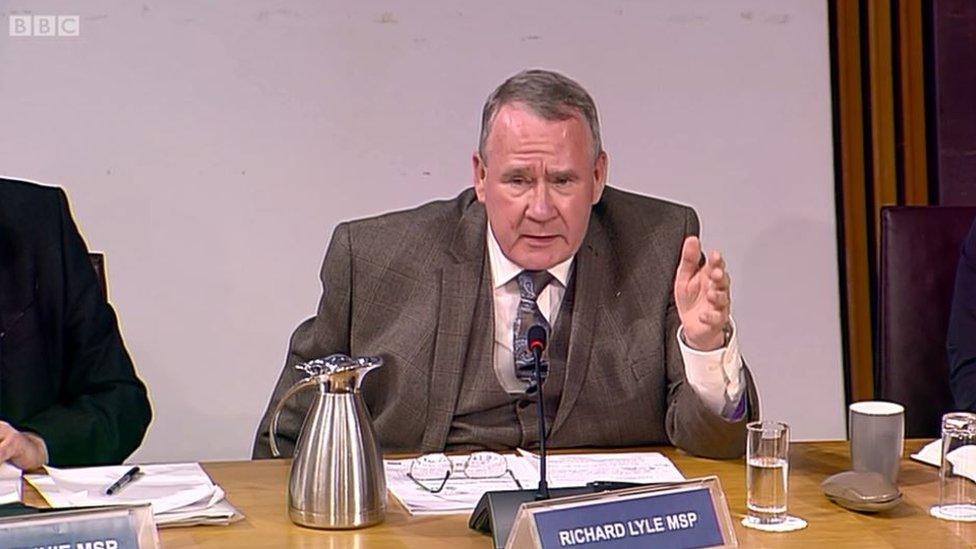Workplace parking tax move 'not easy', MSPs told
- Published

Local politicians will need to be "very brave" and have "vision" to introduce a workplace parking tax, MSPs have heard.
The Scottish government has pledged to support a Green proposal to give councils the power to levy a charge on parking spaces to reduce congestion.
Witnesses from Nottingham, the only council in the UK with a scheme of this sort, spoke positively of its impact.
But they told MSPs that it was "not easy", saying that "strong political leadership" was "absolutely essential".
The government has targeted passing amendments to include the parking levy in the Transport Bill before the summer recess. MSPs would then vote on the bill as a whole later in the year.
The government agreed to back proposals for a workplace parking tax as part of the budget deal with the Scottish Greens earlier this year.
If agreed, this would give councils the power to levy a tax on employers for every parking space they provide for employees. Firms could then decide themselves whether to pass this on to staff.
Councils already have this power in England and Wales, although only one has actually enacted such a scheme.
MSPs called in officials from Nottingham to give evidence about their system as part of the rural economy committee's scrutiny of the plan.

Officials from Nottingham were questioned by MSPs over a video link
The Nottingham scheme currently charges just over £400 per year for each parking space, and has raised £50m for sustainable transport projects since 2012.
Chris Carter, head of transport strategy at the council, said the scheme has had an impact on congestion and air pollution levels, and said there was no evidence that "any particular business has moved out of Nottingham as a result of the levy".
Asked about how the public felt about the move, he said there had been "different reactions from different people".
He said: "City residents, who are predominantly those people who get impacted by traffic, congestion, pollution and all the other adverse impacts of traffic generally support it because they can see the benefits in the investment and they can see that that is beneficial to them.
"People who are likely to drive into Nottingham from further afield are going to say that they've been negatively impacted."
'Strong leadership'
Mr Carter also told the committee that councils could make a success of parking levies if they had a "clear vision" of what could be achieved.
He said: "I think strong political leadership is absolutely essential. As long as there's agreement around a vision then it would work - but I think leadership is the key."
Stephen Ison - a professor of transport policy at Loughborough University - told MSPs he was "perplexed" as to why other councils had not followed Nottingham's "brave" lead.
He said: "These are very difficult, very thorny measures. You have to be very brave, you have to have a vision, because it's not easy.
"You're implementing a disincentive, a charge, some would call it a tax. I think Nottingham were very brave."

SNP backbencher Richard Lyle asked several pointed questions about the impact of the levy on workers
The SNP and Greens should have a majority between them to push the plans through committee and parliament despite opposition from other parties.
However, one SNP committee member, Richard Lyle, spoke out repeatedly against the levy during the meeting.
He said it was "an unfair tax on myself and other people as a motorist", and drew a hypothetical example of a worker having to walk because they could not afford to pay to park.
He said: "If you've got a good transport system, then you might be able to get away with this. But sorry, I ain't walking three miles to work because I can't afford your tax."
Mr Carter said it should be possible for organisations to charge different amounts for parking based on the salary of the worker concerned - if they decide to charge at all.
He said: "The levy is a charge on the employer. So the employer pays the actual charge. It's up to the employer to decide how or if at all that it passes that on to its employees.
"Take the city council (Nottingham) - it does actually charge different amounts for different car parks in different parts of the city and it does actually change the amount that people pay depending on their salary."
The Scottish government has defended the plan, with Deputy First Minister John Swinney saying it was about "empowering" councils and "an example of localism in practice".
- Published4 March 2022

- Published7 February 2019
